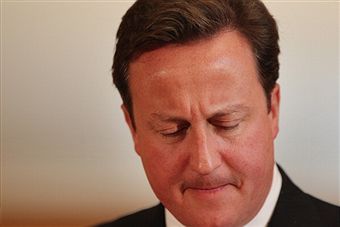 There are, as the old adage goes, “lies, damned lies and statistics”. I’m
beginning to think the same about polls. Take the polls that Britons are not as keen on overseas aid as the Prime Minister. Some of
the headlines attached to them are prone to exaggeration. For example, on the back of the poll, the Mail claimed that “one in four people say they will no longer give money to charities such as
Oxfam and Save the Children.” People may say that but they don’t seem to mean it. For it turns out that the British public has actually increased its giving to Save the Children by nearly 10
per cent in the last year. And earlier this year, the public gave over £100 million to the Comic Relief Red Nose Day appeal – the largest sum
raised to date.
There are, as the old adage goes, “lies, damned lies and statistics”. I’m
beginning to think the same about polls. Take the polls that Britons are not as keen on overseas aid as the Prime Minister. Some of
the headlines attached to them are prone to exaggeration. For example, on the back of the poll, the Mail claimed that “one in four people say they will no longer give money to charities such as
Oxfam and Save the Children.” People may say that but they don’t seem to mean it. For it turns out that the British public has actually increased its giving to Save the Children by nearly 10
per cent in the last year. And earlier this year, the public gave over £100 million to the Comic Relief Red Nose Day appeal – the largest sum
raised to date.
That’s not unnatural. People tell pollsters one thing and often do something else. To really understand popular sentiments, policy-makers must dig deeper, run focus groups and assess a range of data rather than simply respond to supposed demands from the public.
But that’s not all. For newspapers and pressure groups are not averse to portraying their data in a certain way to back their political leanings. So the Mail said, “The Prime Minister’s call for 0.7 per cent of national income to go on international development, while there is austerity at home, is hugely unpopular with voters, with 56 per cent against the idea.” The YouGov@Cambridge survey actually shows that 41 per cent of those asked favoured the principle of overseas aid against 38 per cent who were unfavourable.
Then there is what social scientists call “cognitive barriers” or, in plain-speak, the fact that some people do not know what they are talking about. So it is natural that 77 per cent of people polled would agree that Britain should not be giving aid to developing countries if they have links to terrorists or terrorism. But what if the aid contains support to those in countries fighting terrorism? There is a good chance that people would answer differently if they knew what qualified under the aid rubric. And what qualifies as so-called links to terrorism? To the US intelligence community, London is now “linked” to terrorism given the risk of would-be terrorists with UK passport holders travelling to the US on the visa waiver programme.
Finally, there are some contradictions in the polling. 83 per cent of people agree with the statement that Britain should not be giving aid to developing countries with large, successful economies like India or China. Yet at the same time 41 per cent agree with the claim that “International aid improves diplomatic relations with countries in receipt of aid, whose support we may need in the future”. Whatever else India is, it would certainly fit this category and the government has worked hard to advance commercial ties with New Delhi. In fact, despite the Indian foreign ministry’s well-publicised put-down of UK aid, officials tell me that Prime Minister Singh made clear to David Cameron that, overall, UK-Indian ties benefited from the aid and that any “surprising” change would be seen negatively.
Policy-making should not ignore popular sentiment but nor should it be driven by partial, contradictory or contestable data about public attitudes. Aid minister Andrew Mitchell hopes Britons will be increasingly proud of their overseas aid; not like they feel towards the military, but proud nonetheless. His value-for-money reforms will help this process, forcing DfiD to become smarter about working alongside the Foreign Office and the military, focus on private-sector development and back the freedom-seeking movements over the authoritarian regimes in Rwanda, Ethiopia and Malawi. There is nothing in the polling to suggest that this is an impossible mission.






Comments